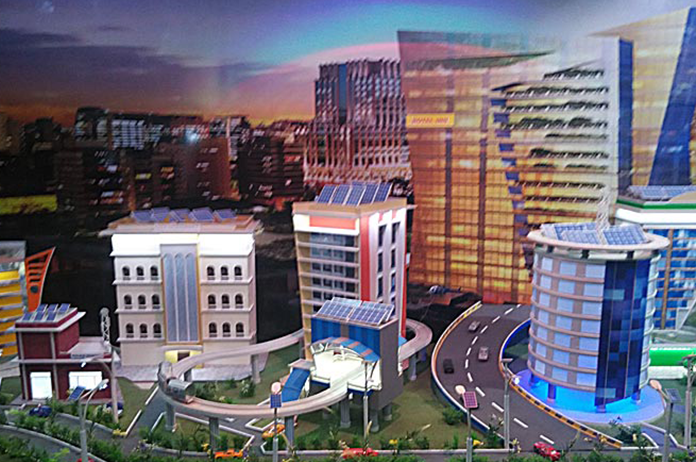Kampong Speu Targeted For Smart City Project

The Cambodian province of Kampong Speu is on the road to hosting a smart city.
Information from the Singaporean blockchain firm PLMP Fintech disclosed that the Council for the Development of Cambodia has recently given a green light to the project known as ‘Creatanium Blockchain Smart City’. Approval from CDC means a project’s implementation can proceed. The CDC is the government’s highest-level decision-making body for private and public sector investment.
The proposed smart city will be located inside the 300-hectare Kong Pisei Special Economic Zone in Kong Pisei district. Peter Lim, PLMP Fintech strategist, said in a company press release that the area is an excellent site for a smart city. “We have a city, a population, and the associated business activities: the ideal ground to implement our suite of blockchain solutions, ranging from property management through smart contracts to e-payments,” he explained.
According to PLMP Fintech, a big part of the SEZ would be allocated to them for different aspects of the project. “One-fifth of the land has been allocated to PLMP Fintech for the construction and management of a residential cluster with condominium, semi-detached, detached and terrace units for the SEZ’s population of Cambodian professionals and international expats,” the press release said. It said the area will also include shophouses and a shopping mall to host the linked service industry.
PLMP Fintech said they have plans to later expand it to the rest of the SEZ. “As construction works proceed, PLMP Fintech is already eyeing an expansion of its own Creatanium blockchain beyond the residential and commercial area to the rest of the SEZ, whose daily processing and transiting of agricultural products would benefit from secured tracking and the price standardisation achieved through the commodities trading platform that the Singaporean company successfully developed for Indonesia,” it said. PLMP Fintech and the Indonesian government have jointly developed a blockchain-based platform with the potential to “shake up” the country’s shipping and logistics sector, according to the company.
Local stakeholders welcomed the project, saying projects like this are critical to Cambodia’s development. “Importing e-solutions and implementing technology across the nation is crucial to its long-term socio-economic health, assuming, of course, that it is run parallel with training and opportunities for locals,” Paul Ellender, manager of property firm Freer Enterprises (Cambodia) Co Ltd, said. “My fear is that this new wave of initiatives will bypass the Khmer community,” he added.
No timeframe has been set for the project, but the company has announced that next week it will bring the first batch of small and medium-sized businesses and entrepreneurs to scout the site. Their tour will also include an official reception with Singapore’s Ambassador to Cambodia, Michael Tan.
It is believed that Chinese investors are also involved in the project, which has been described as a “key Sino-Cambodian agricultural and industrial cooperation project” within the Belt and Road Initiative. Since Cambodia’s inclusion in the Japanese-led Asean Smart City Network early this year, a few international investors have expressed interest or announced plans to build smart cities in the Kingdom.
A typical smart city uses blockchain technology to run systems related to road traffic, public transportation, the electric grid, and waterworks, among others. This advanced concept of urban development is gaining popularity throughout Asia. News of PLMP Fintech’s plans for a smart city in Kampong Speu comes a few weeks after Limestone Network, a Singaporean startup, announced plans to create a 100-hectare smart city in Phnom Penh. Last month, Vietnam and Cambodia also discussed plans to cooperate in smart city development. Since 2016, South Korea has been pushing to build a smart city in Cambodia.